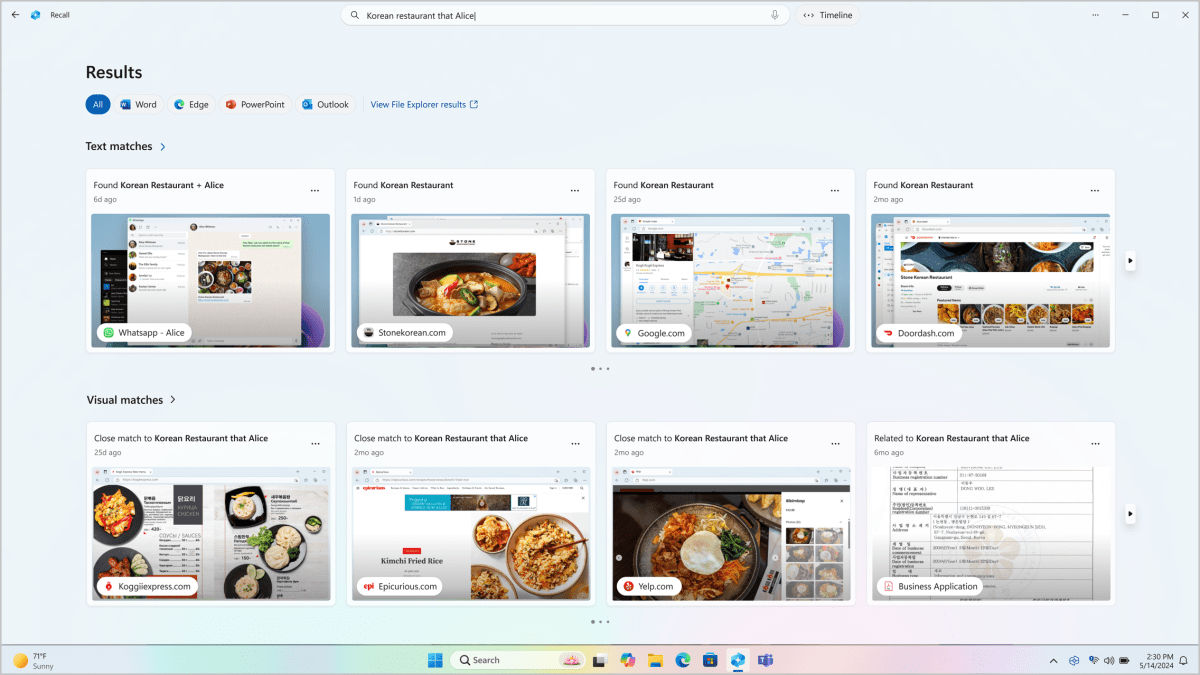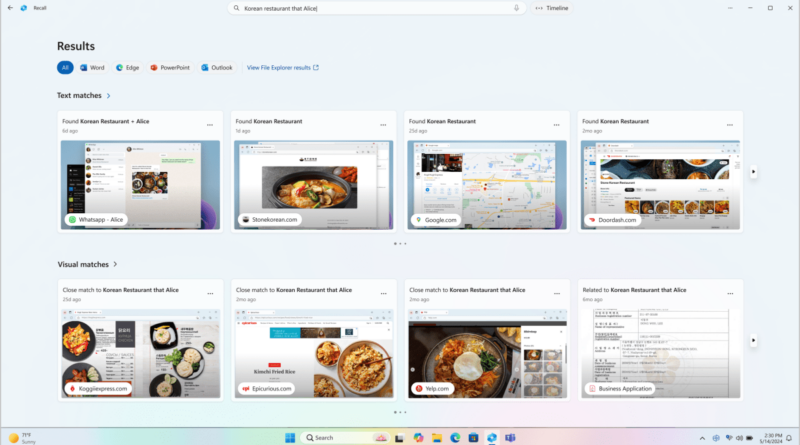Windows 11’s AI Recall can’t be turned off, but it should be
Go into your Settings in Windows 11, and you’ll find a list of your PC’s installed apps—including a couple related to core Windows features like Cortana and Copilot. If you don’t like anything, you can nuke the offending software with a click.
But despite the brief moment of happiness on the internet, the same isn’t true for Microsoft Recall, the upcoming AI-embedded feature of Windows that will take photos of everything you do on your PC. And most likely, canceling the Recall won’t be an option for a while after launch (if ever).
However, it should be given Microsoft’s efforts to adapt Windows 11 with security and privacy.
Microsoft Recall is a double-edged sword. The AI-powered search feature has the potential to reduce the burden of tracking your digital footprints – instead it can filter through screenshots it has taken of the places you’ve visited, information you searched for, files you worked on, and more. Hoping to find that one sourdough bread recipe you forgot to tag, or which messaging app your partner used to send their flight details.
But the screenshots that Recall takes to perform that process also have the potential to reveal extreme details about your life to others. It’s a potential gold mine for criminals and bad actors, and it can also put individuals in abusive relationships at greater risk of harm.
Microsoft heeded the first outcry about privacy and security when Recall was first revealed back in May – it updated its original plans for the launch, promising to turn off Recall automatically (in contrast and start) and use the encryption method so that the screenshots. they were only available when needed to search. The company has also delayed the release of the wider feature, keeping it to Windows Insiders only for further testing.

Microsoft
However, when the preview version of Windows 11 appeared to allow the option to disable Recall, Microsoft rubbished the result saying it was an unplanned error. You can still turn off Recall, but you won’t be able to use it in bulk from your PC.
It’s a shame, because in very simple terms, a truly secure PC is one that keeps your data out of unwanted hands. And if Microsoft opens the door for that information to be shared with others, it should allow it to close that door completely. The threat of PC crime is ever-present in today’s world—the number and scope of phishing attacks is increasing. The Microsoft Recall is an expected liability, as features that are not removed can be unlocked or misused. The option to cancel the Recall can remove the potential problem at its root.
To be fair, the line between future technology and security is often thin. Tech companies can’t reduce their products to the point of rendering them useless—but more thoughtful approaches would allow futurists to dream. their skills are alive, while protecting those who need them from bad intentions. The ability to delete a feature makes it available as intended for those who want it.
But as it stands, the best public hope for the Microsoft Recall is that it gets the same treatment as Cortana and Copilot, where it’s been pushed so hard to every Windows user that no one bothers about it. In the end, it will be thrown into the pasture, never to be seen again—a sad outcome, where those who are looking for the future or are vigilant have not found what they are looking for.
#Windows #11s #Recall #turned
